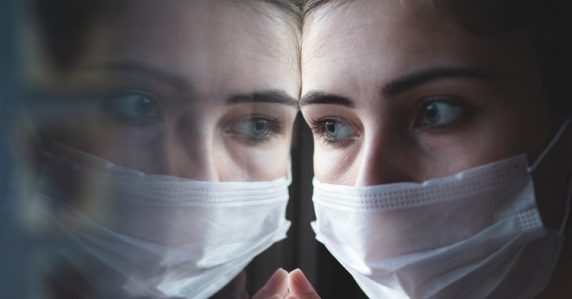Tens of thousands of people are suffering long-Covid symptoms more than a year after infection, say researchers who carried out the UKs largest study of the impact of the virus.
A survey of a quarter of a million people taking part in the REACT study found while most people recover within 12 weeks, 7.5% of people had persistent symptoms for more three months and 5% reported symptoms lasting more than a year.
But people infected in the Omicron wave of the pandemic were 88% less likely to experience symptoms longer than four weeks after infection, compared to earlier wave, the study found, which could be due to immunity building up in the population and vaccination.
The new analysis, published in Nature Communications, also highlighted how persistent symptoms of Covid were related to worse mental health and quality of life.
Being female, already having more than one comorbidity, being from a deprived area, and being infected with an original strain of Covid were all related with higher risk of symptoms lasting more than 12 weeks and longer recovery time in those with persistent symptoms, the researchers said.
The survey results – which were collected in towards the end of 2022 – show a snapshot of the continued impact of Covid-19 in the UK, the Imperial College London team noted.
Mild fatigue, difficulty thinking or concentrating and joint pains were the most common ongoing symptoms. But others reported loss or change of sense of smell or taste, shortness of breath, severe fatigue, chest tightness or pain, and poor memory.
Almost a third of people reporting symptoms at 12 weeks will have recovered within a year, the researchers found.
Professor Paul Elliott, chair in epidemiology and public health medicine at Imperial College London, said: ‘We find that the variant of SARS-CoV-2 people are infected with, the initial severity of their symptoms, and whether they have pre-existing health conditions all have an impact on whether they will develop lasting symptoms.’
Study lead Dr Christina Atchison, principal clinical academic fellow within the School of Public Health said while the landscape has changed considerably since the early peak of the Covid-19 pandemic, this analysis shows that a proportion of adults are still experiencing lasting symptoms.
‘Importantly, we find that compared to wild type virus, those infected when Omicron was dominant were far less likely to report symptoms lasting beyond 12 weeks.
‘This may reflect the changing levels of immunity in the population from previous exposure to the virus and vaccination.’
The team is now doing detailed interviews with some of those affected with ongoing symptoms to further understand the variation in people’s experiences and the impact on their everyday lives as well as the broader longer-term impact of the pandemic on health and wellbeing of those who took part in REACT.
Pulse July survey
Take our July 2025 survey to potentially win £1.000 worth of tokens













So, basically, bad news for economic recovery and the NHS, as more and more people will be long-term unable to return to gainful employment.
But there is a worrying sentence wheedling it’s way into that study write-up and comment “‘This may reflect the changing levels of immunity in the population from previous exposure to the virus and vaccination.’ ”
There is no grounds given for any logical sense in this statement. Clearly ‘levels of immunity’ have not been suffficient to prevent infection or transmission, the patient has still had an infection. So, there is no proof of any possible explanation why long-covid whould occur less often now than on a patient who was infected longer ago. Indeed, the only information coming out of studies suggests that each episode of infection causes damage to the immune system, which ‘may’ add up over time to make sequelae more common in future. There is already suspicion that this damage can worsen outcomes from Adenovirus infections.
It is equally logical that “This may reflect boredom with news messages about Covid”, as any relation to “levels of immunity”.
It has been proven that presence of antibody, nor levels of antibody, do NOT equate to “levels of IMMUNITY”. In fact, people who catch a new episode of infection, obviously, ‘a priori’ do NOT have high levels of immunity at the time of catching the new infection – they have LOW levels of immunity at this time, despite any measured high levels of antibody.
Clearly this statement that there ‘may’ be a link to levels of past infection and vaccination is actually highly misleading, and unbecoming any person of science.
It is no more scientific than saying “The sun MAY be purple during the night, while you cannot see it.”
We need full honesty in scientific research and study reports, for professionals or general public. Anything less is not acceptable.
Meaningless.
No agreed diagnostic criteria.
No characteristic pathology.
No diagnostic test.
It’s diagnosis on demand.